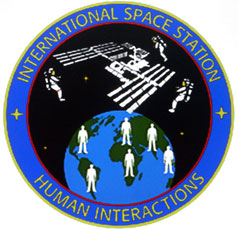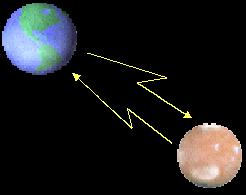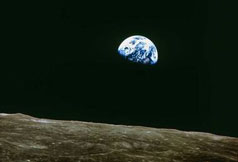
|
Flamsteed Astronomy Society |
|
‘The Psychology and Physiology of Space Travel in Humans’ by Prof Nick Kanas MD - March 16, 2012 |
|
page 2 of 3 |

|
Prof Kanas then discussed what happens to make astronauts feel good about the mission. By far the most significant factor was seeing the Earth from space. It seems that the beauty of the Earth is a hugely positive factor in an astronauts experience of space. Nick then detailed some of the considerations which have to be given to sending astronauts on inter-planetary missions, showing the average two-way communication time in minutes and the round trip mission duration in years. For example, the average two-way communication time for a trip to Saturn is 159 minutes, and the length of the mission would be 8.3 years. Long-term missions result in unique psycho-social stresses. The crew must have increased autonomy, because they cannot rely on ground support. There is increased dependence on on-board technical resources. Crews would suffer from increased isolation and monotony (especially on the way home), and there is the significant problem of the Earth being out of view, removing one of the main positives of space travel (although on-board telescopes may help in this regard). SPECIAL ISSUES FOR DEEP SPACE MISSIONS A round trip to Neptune would take 26 years using our current technology. Even if we developed technology allowing us to travel at a fraction of the speed of light, trips to our nearest stars would take decades. Who would volunteer for such a mission? There are unknown physical and psychological effects of travelling at such high speeds. Also, how would astronauts fill in their time, and how would they keep fit? There would be an increased chance of illness on such long trips. Could surgery be performed in space? What would be the psychological impact when astronauts return to Earth, having to deal with aging and dead family and friends. So, why would we go into deep space? Nick explained that the Earth is constantly under threat, both from our own impact on planetary resources and from external factors such as cometary collisions. Research into deep space travel could possibly increase the long-term survival hopes of the human race. Once again, this was a fascinating lecture from Professor Kanas, and he concluded the lecture by answering questions.
Chris Sutcliffe
Continued/ |

|
Badge of the 'Human interactions in space' study for the International Space Station |


|
The huge distances involved in deep space travel result in long two-way communication times |

|
Earth faces external threats from impact events. Our long-term survival could depend on interstellar travel |

|
Seeing the Earth from space is a hugely positive experience for astronauts |